Minneapolis City Council: Safe encampments, rideshare wages and more
MINNEAPOLIS (FOX 9) - At its second full body meeting of 2024, the Minneapolis City Council has signaled a wide swath of priorities it will hope to tackle for city residents, including potentially creating "safe spaces" for homeless encampments, giving more power to voters and potential home buyers, guaranteeing a minimum wage for Uber and Lyft drivers and more.
In total, the council introduced and referred 26 different initiatives and ordinances to be sent to committees for discussion before they could receive ultimate approval by the council and Minneapolis Mayor Jacob Frey.
Below are several priorities that are likely to have an effect on Minneapolis residents if approved.
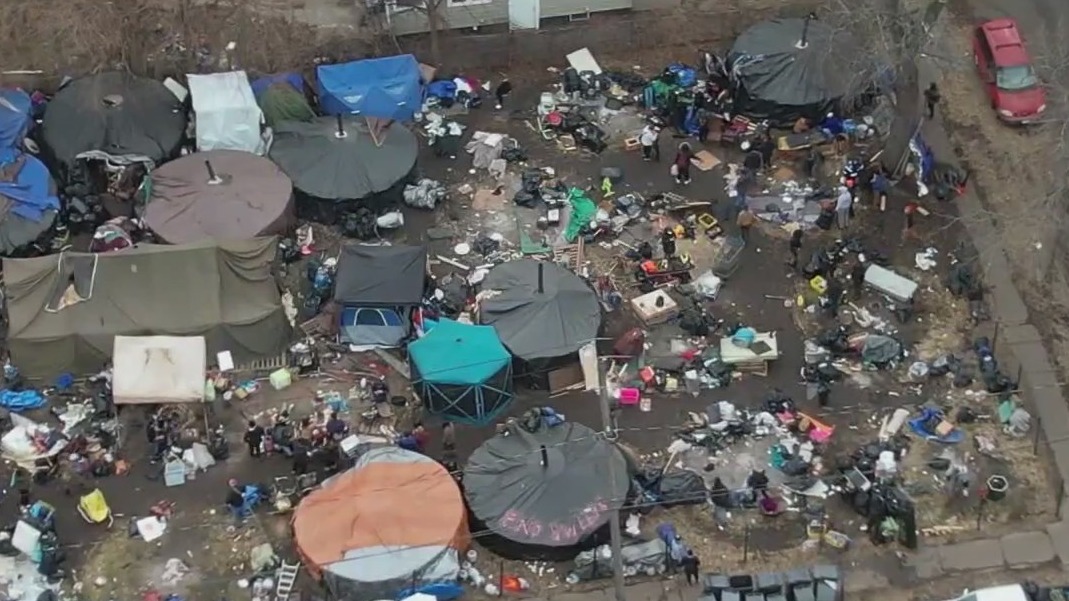
Homeless encampment cleared in Minneapolis
The City of Minneapolis cleared another homeless encampment on Tuesday, following several other clearings throughout recent months as part of an ongoing effort to curtail their growth throughout the city.
‘Safe space’ encampments
Council members Jason Chavez, Aisha Chughtai, and Aurin Chowdhury have authored an ordinance that would amend the Minneapolis city code to, "establish authorized and regulated ‘safe outdoor spaces’ or ‘individualized outdoor sheltering options’ for people experiencing homelessness.
Part of the introduction includes a "humane encampment response ordinance" as well as an "encampment removal reporting ordinance" that intends to mandate reporting requirements related to encampment removals by city officials.
Historically, and more recently, Minneapolis has struggled with homeless encampments that surrounding residents claim bring concerns of sex trafficking and drug usage. When the city attempts to clear them, it often results in a confrontation between encampment residents and responding law enforcement.
As the problem remains unresolved, recently a Public Health and Safety Committee hearing turned heated between council member LaTrisha Vetaw and activists that were observing the meeting.
Vetaw took aim at drug abuse associated with the encampments, sharing a candid story about her mother's battle with addiction.
The meeting ultimately devolved into a shouting match between Vetaw and other council members, and then between Vetaw and activists present at the meeting, with Vetraw saying "white people don’t talk to me. Do not talk to me if you don’t live in this camp."
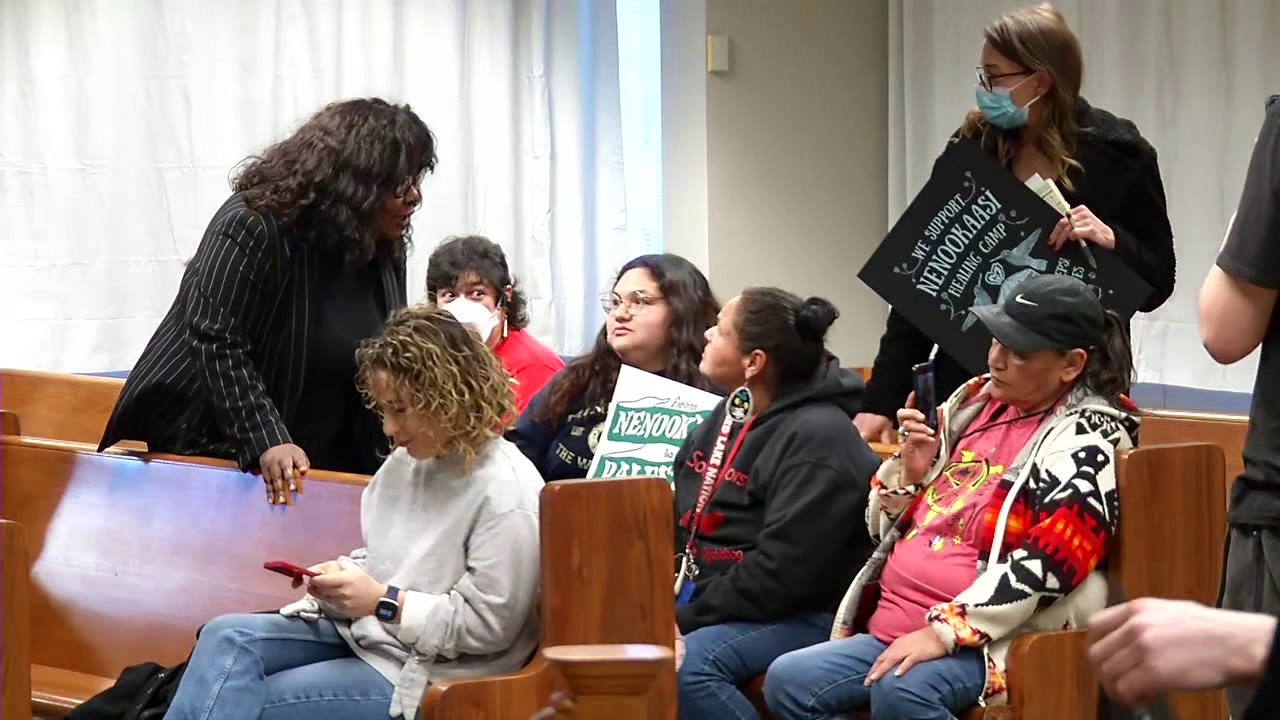
Mpls council meeting on encampments turns heated
A Minneapolis council committee meeting over homeless encampments turned heated on Wednesday as council members debated homeless encampments.
The "safe outdoor spaces" ordinances are set to appear before the Business, Housing & Zoning Committee next along their path to potential approval.
Any proposal requires two committee readings before it can go before a full City Council vote.
Uber, Lyft wages
During the summer of 2023, the City Council approved a measure that would set a minimum wage for rideshare drivers, like those who work for Lyft and Uber.
As supporters of the plan, drivers say they have seen their wages drop by 60% over the last nine years while the costs associated with driving have gone up, and have sought a minimum wage from Minneapolis, following examples in cities such as New York City, Seattle and San Francisco.
Both Uber and Lyft say they have raised prices for drivers in response to new minimum wages, but ultimately fought the Minneapolis ordinance – threatening to cease operations in Minneapolis should it pass.
Mayor Frey vetoed the proposal while saying he had reached an agreement with the companies’ drivers to ensure they were paid a minimum wage of $5 for trips in the city.
However, protests continue among drivers who say they are making an unfair wage.
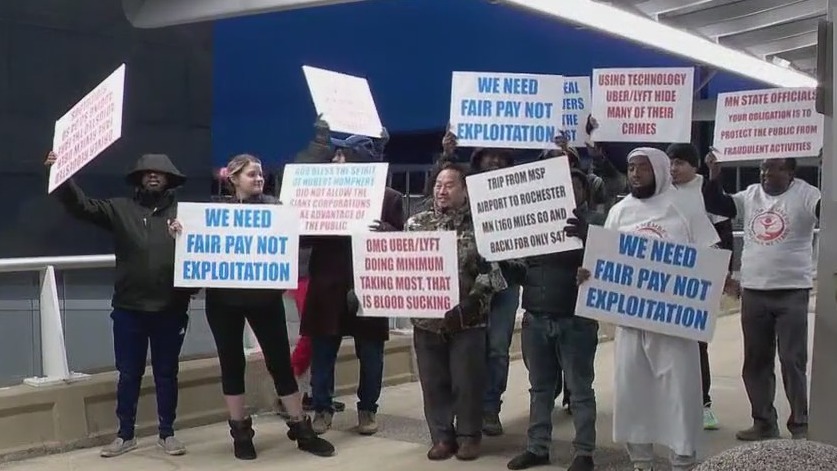
MN rideshare drivers picket at MSP airport
Minnesota Uber and Lyft drivers held a strike Thursday at the Minneapolis-St. Paul Airport. Drivers are demanding more compensation for the work that they do.
The City Council plans to take up the issue again this year, with both drivers – and those who use the services – waiting to see whether any change becomes permanent.
A new ordinance would guarantee drivers $1.40 per mile and 0.51 cents per minute for the time transporting a rider, or the $5 minimum guarantee – whichever is greater. That rate increases to $1.81 per mile if the vehicle is wheelchair accessible.
If a cancelation occurs after the driver has already departed to pick up a rider, 80% of any cancelation fee charged to the rider would go to the driver.
The minimum compensation would only apply to a ride that occurs within city limits.
It remains to be seen how both Frey and the companies involved, would respond to its approval this time around.
Secure bike storage
As city officials continue to work to expand Minneapolis biking pathways and attract more people to use trails instead of cars, they will also look to curtail thefts that can occur while storing a bike in a public place.
Currently, 5% of trips taken in the city are by bicycle, but the City’s "As You Go" campaign has a goal of shifting 60% of trips to non-automobile options by 2030.
The Secure Bike Parking Pilot authorizes the creation of a three-year program, with an option to extend the pilot for two additional years, for city officials to, "test and evaluate the requirements of implementing a secure bicycle parking network across the City."
The program would create portable storage units for residents to securely store bikes, similar to a parking garage for cars, but at a fraction of the size. Concepts range from basic cages, to fully enclosed structures that also offer charging stations for e-bikes. Some could also include room for passenger and cargo bikes that can be used to carry kids and grocery bags.
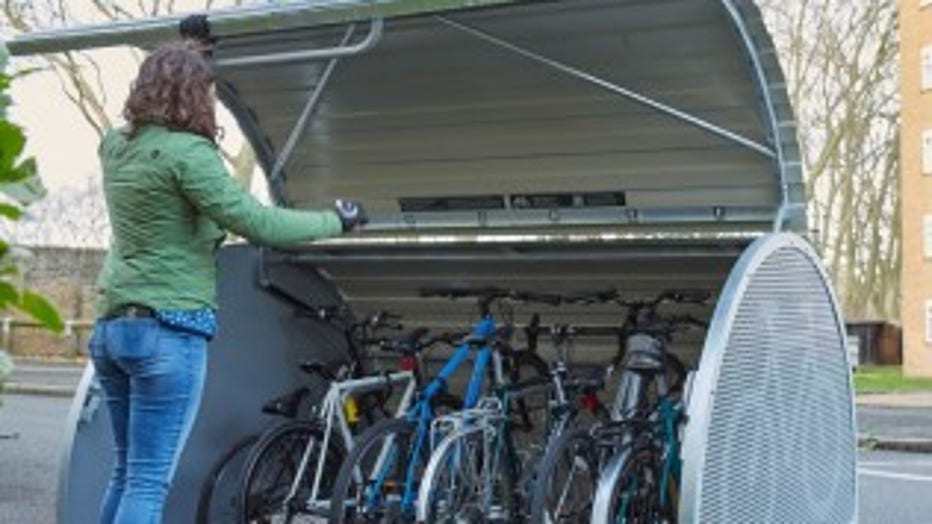
The Secure Bike Parking Pilot Program would create options for bicyclists to securely store their rides around the city of Minneapolis.
City officials have previously discussed 15 to 20 locations throughout the city, at no cost to residents for use.
The city could begin soliciting proposals later this month, and select an operator for the pilot program in March, with the hopes they could become available for use this summer and fall.
Ballot power to the people
In 2021, Minneapolis voters approved a "strong mayor" system in which the mayor is now the chief executive of its government, and the council acts as the legislative body – a system in which the mayor has sole oversight of all 10 city departments.
Proponents of Question 1, as voters knew it, said the previous structure hindered progress due to several departments working under varying department heads and authority structures. Its approval narrowly passed, by a 52.4% to 47.6% margin – roughly 7,000 voters.
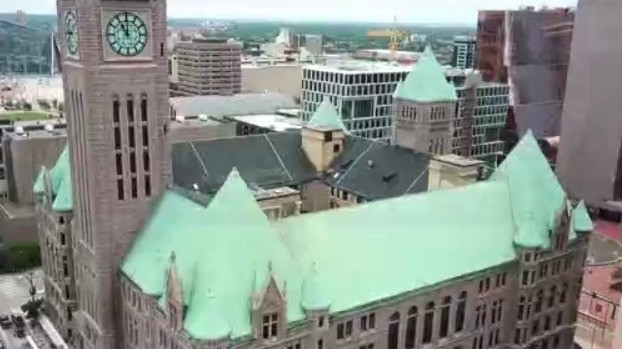
What it means if Minneapolis approves a 'strong mayor' system
What it means if Minneapolis approves a 'strong mayor' system this election.
Since then, focus has been placed on the structural organizational changes within the new government structure.
But a new ordinance would look to further voter’s power within the system, similar to other cities that use the structure, with a Request for Committee Action (RCA) saying, "the strong mayor models that were used to guide our current structure include cities that have ballot initiative power for their residents. This is a critical tool that maximizes good governance, strengthens democracy, and provides residents a critical pathway to executing change when there is gridlock or ineffective leaders within City Hall."
"A common theme is a deep frustration at the slow pace of City Hall on responding to community needs and a feeling of helplessness," the RCA reads. "Minneapolis residents that live under a strong mayor system should have all the opportunities to participate in local government that other cities of similar size do in our state. This is the first step to actualizing that power."
The intent of an ordinance would be to provide additional power to residents through ballot initiatives, such as the one that created the "strong mayor" system to begin with.
For now, the measure prompts the city’s legal department to draft an ordinance in which the city will study before voting.
Introduced by council member Robin Wonsley, it could ultimately appear before voters at the November 5, 2024, general election.

